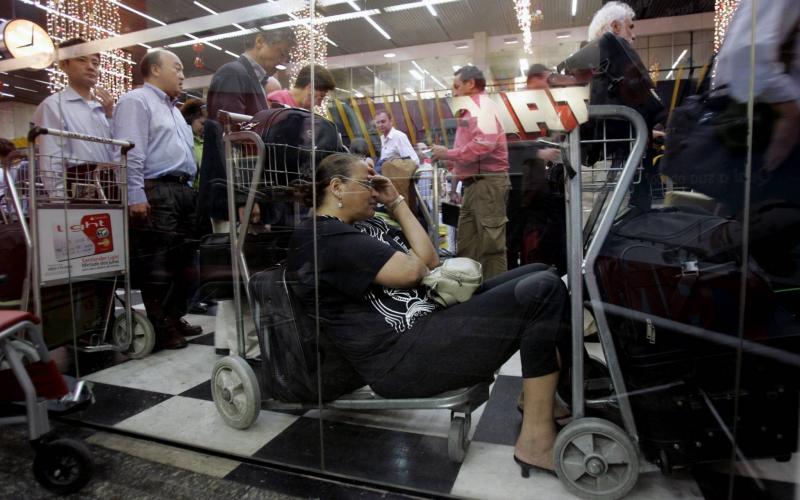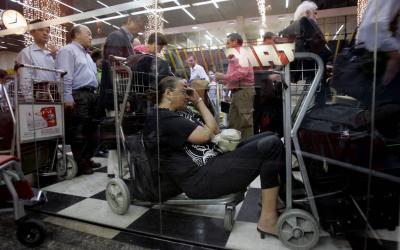More than 6,000 flights were canceled worldwide during the Christmas holiday weekend, and thousands of other flights were delayed, according to the specialized site "FlightAware," as the highly contagious Omicron variant of the coronavirus causes travel disruptions affecting millions. In the United States, severe weather is expected to exacerbate the chaos engulfing airports in the western states, especially with snowstorms hitting Seattle and Portland during the Christmas holiday.
The "FlightAware" site reported that about 2,800 flights were canceled globally on Saturday, including over 970 flights arriving at or departing from U.S. airports, with delays exceeding 8,000 flights as of 01:30 GMT. One airline indicated it expects further cancellations on Sunday.
The Christmas holiday is usually the peak time for air travel, but the rapid spread of the Omicron variant has led to a sharp increase in COVID-19 cases, forcing airlines to cancel flights due to the necessity of quarantining pilots and flight crews. Around 2,400 flights were canceled on Friday, with about 11,000 flights postponed, and the site recorded more than 900 scheduled flights canceled for Sunday.
Pilots, flight attendants, and other employees requested sick leaves or were required to quarantine after coming into contact with COVID-positive individuals or contracting the virus themselves, prompting airlines like Lufthansa, Delta, United Airlines, and JetBlue, along with many others facing staffing shortages, to cancel flights during a peak travel period.
A traveler from Vermont tweeted to the airline on Saturday, "Please help. My United flight has been canceled again. I want to get back to celebrate Christmas."
Staff rushed to reroute pilots and planes and change employee assignments, but the Omicron outbreak caused widespread disturbances. United stated in a Friday announcement, "The rising number of Omicron cases nationwide is directly impacting our crews and the people who manage our operations." The airline added, "As a result, we unfortunately had to cancel some flights and notify affected customers before they arrived at the airport," emphasizing that it is working to find new bookings for passengers.
Delta canceled at least 310 flights on Saturday and dozens more on Sunday, stating that it "exhausted all options and resources, including rerouting flights and replacing aircraft and crews to cover scheduled flights." The company apologized to customers for having to postpone their holiday travel plans.
The number of flight cancellations added to the frustration related to the pandemic for many Americans who hoped to meet family members after travel and Christmas celebrations were significantly reduced last year. The highest number of flight cancellations was reported among Chinese airlines, with China Eastern canceling about 1,000 flights (over 20% of its scheduled flights), while Air China halted nearly 20% of its planned flights during this period.
According to estimates from the American Automobile Association, over 109 million Americans were set to travel by air, train, or car between December 23 and January 2, a 34% increase from last year. However, most of these plans were made before the Omicron variant became the dominant strain in the United States, currently putting pressure on some hospitals and healthcare workers. New York State reported 44,431 new COVID-19 cases on Friday, a record high.
Regarding the weather, while unusually warm temperatures linger in the eastern states, the National Weather Service warned of storms that include frost and extreme freezing conditions across large parts of the western United States. The agency stated, "Severely cold air and moisture from the Pacific are leading to prolonged snow in the mountains, along with rain in coastal areas and valleys, some of which will be heavy at times." Snowfall is expected to reach between two to four feet (61 to 122 centimeters) over the weekend, with potentially greater accumulation in certain areas like the northern and central Sierra Nevada mountains in California and Oregon, according to the weather service. It noted that travel will be "very difficult to impossible at times" from the Sierra Mountains to the central Rocky Mountains over the weekend due to the snow.




